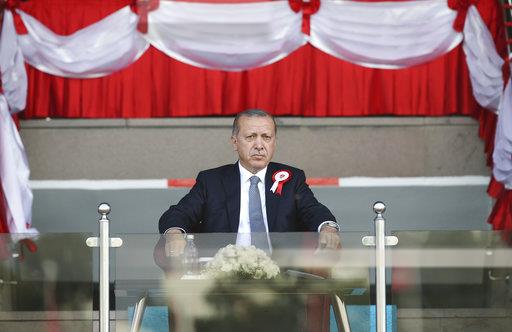Ankara, Turkey—The Turkish Navy is planning a new base in the occupied territory of north Cyprus.
According to the Yeni Safak newspaper, which is closely associated with the Turkish President Tayyip Erdogan, the Turkish Navy is exploring the possibility of a new naval base on the island. The process has already begun with an official request to the Foreign Ministry for a suitable location.
Judging by the recent remarks of the Turkish President, this isn’t just a political or diplomatic ploy, but a very likely move. In a speech during Turkey’s Victory Day, Erdogan said, “If we show even a small sign of weakness, or perceive a situation in that way, you will see they will come onto us like hooded crows. Thus, we have to be powerful in politics, diplomacy, economy, trade and technology. Otherwise, put this homeland and geography aside, they won’t give us a single day to live in this world.”
The words of the Turkish president are highly alarming. He perceives Turkey as a country under attack, and that it must defend itself. “I believe that today we’re on the brink of new victories as well. Surely, we will win this fight together with those who put their trust in Turkey,” he added.
A cooperative, law-abiding Turkey is essential for the stability of both the Balkans and the Eastern Mediterranean. Yet such pronouncements have the exact opposite effect.
Notwithstanding the impact that such a move would have on a final resolution of the Cyprus dispute, an extensive Turkish naval base in Cyprus would upset the delicate geopolitical and energy balance of the region. Considerable oil and natural gas resources have been found in the Eastern Mediterranean. Add the Syrian Civil war to the mix, and the fact that the region brims with foreign powers (Greece, France, Russia, Italy, Spain, Portugal, Canada, the UK, and the US are some of them). Foreign navies sail the region to ensure that international law isn’t violated, and to guarantee energy companies are free to conduct research and drilling operations.
In February, a drilling ship working for the Italian energy giant Eni was forced to evacuate the region after repeated Turkish threats to sink her. Since then, however, US and French warships, supporting the US ExxonMobil and the French Total respectively, have achieved a delicate security.
Further complicating matters, a Turkish research vessel name Fatih (“the conqueror”) will be sailing for its first drill voyage in the Eastern Mediterranean this forthcoming autumn.
Cyprus remains divided since a Turkish invasion in 1974. Repeated talks between the Greek-Cypriots and Turkish-Cypriots have been unproductive, and a state of high tension exists in the island.
Already have an account? Sign In
Two ways to continue to read this article.
Subscribe
$1.99
every 4 weeks
- Unlimited access to all articles
- Support independent journalism
- Ad-free reading experience
Subscribe Now
Recurring Monthly. Cancel Anytime.











COMMENTS